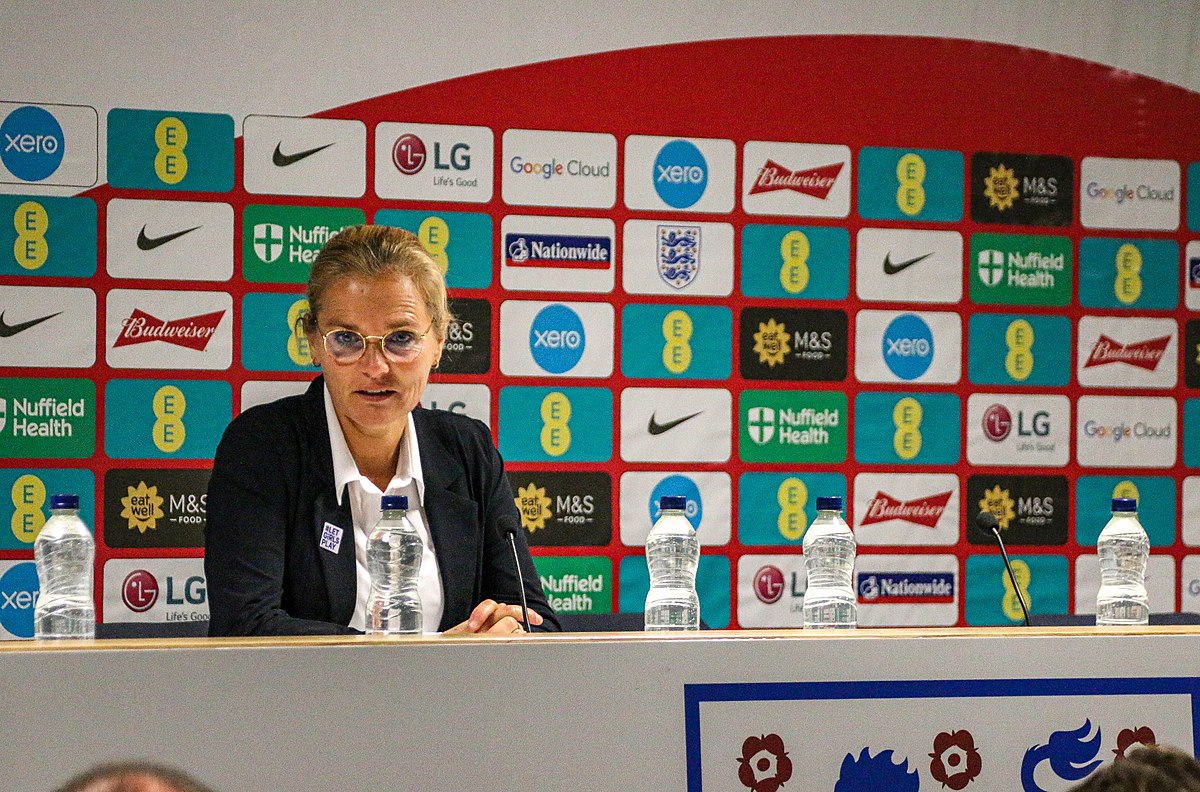Wiegman continues Lionesses fairytale with sights set on the 2027 World Cup
On 16 January it was announced that Sarina Wiegman had signed a contract extension, meaning she will continue to manage the England Lionesses until 2027.
Having taken over from Phil Neville as England manager in 2021, if Wiegman remains head coach for the duration of her contract, she will have led the Lionesses for six years.
Her achievements make Wiegman the most successful England women’s Manager in history
Already, Wiegman has made history for England. In 2022 she led the Lionesses to victory at the UEFA Women’s Euros and last summer she brought England to the final of the FIFA Women’s World Cup.
Prior to Wiegman, the England women had never won a European championship, nor made it to a World Cup final. Her achievements make Wiegman the most successful England Women’s manager in history.
Wiegman has not only won titles with England, but also with the Dutch women’s national team whom she previously managed, leading them to victory at the 2017 UEFA Euros. Her successes at Euros in particular illustrate her management abilities when it comes to tournament football.
Her contract extension, which sees her through to the end of the 2027 Women’s World Cup, has therefore given Lionesses’ fans hope. Wiegman will help England through qualifiers for the 2025 UEFA Euros in Switzerland, with the aim of retaining the team’s European title. Then, two summers later, Wiegman’s eyes will be on a second World Cup final, where she will hope to go one better.
Not only has Wiegman led teams to victory, but she has also been recognised with personal awards on numerous occasions – one of those being the night before the announcement of her contract extension.
Wiegman was named as the Best Women’s Coach of the year
On the evening of 15 January, Wiegman was named as the Best Women’s Coach of the year at the FIFA Best Awards for the fourth time. She previously won the award in 2017, 2020, and 2022.
Her quality as a manager was further evidenced by the fact that seven Lionesses were featured in the FIFA Women’s World XI, setting a record for the most players from one country featuring in a FIFA Men’s or Women’s World XI.
Additionally, Mary Earps took home FIFA’s Best Goalkeeper for the second year in a row. The celebration of English players at award ceremonies has become increasingly common since Wiegman’s takeover. The manager has allowed the players to express themselves on the pitch, which has produced results for both the team and the individuals.
Beyond silverware, awards, and medals, Wiegman’s managerial approach has given the Lionesses’ thousands of new fans. She has encouraged players to appreciate the supporters who have travelled to support the team.
This was mentioned in Wiegman’s book, What it takes, in which she details her career, from playing for the Netherlands through to managing them, and beyond. It gives an insight into her life both on and off the pitch, depicting her rise to becoming one of the best-known managers in the world.
Wiegman’s England squad missed out on qualifying for the 2024 Paris Olympics
While Wiegman has become one of the key faces of the England women’s side, their assistant coach Arjan Veurink is a crucial member of staff. Veurink worked with Wiegman during her time as manager for the Netherlands and moved with her to England in 2021.
Veurink also announced his contract extension with England on 16 January. He wrote in an Instagram post that he’s “looking forward to keep building on the successes we’ve already achieved”.
In an interview that came alongside the announcement of Wiegman’s contract extension she said: “Of course, working with this group of players, they are good human beings and are very talented, so I am really excited to stay a little longer.”
In addition to managing the squad, Wiegman has been heavily involved in the FA’s “Let Girls Play” campaign, which encourages young girls across the nation to play football.
Unfortunately, Wiegman’s England squad missed out on qualifying for the 2024 Paris Olympics, due to their inferior goal difference in their UEFA Women’s Nations League group. Yet, despite this small blip, ultimately Wiegman’s successes outweigh her failures.
It can be strongly argued that a good part of the reason for the recent rapid growth in support for women’s football in England is down to Wiegman. Having now taken the Lionesses to the next level, the future is certainly worth getting excited about.

Comments